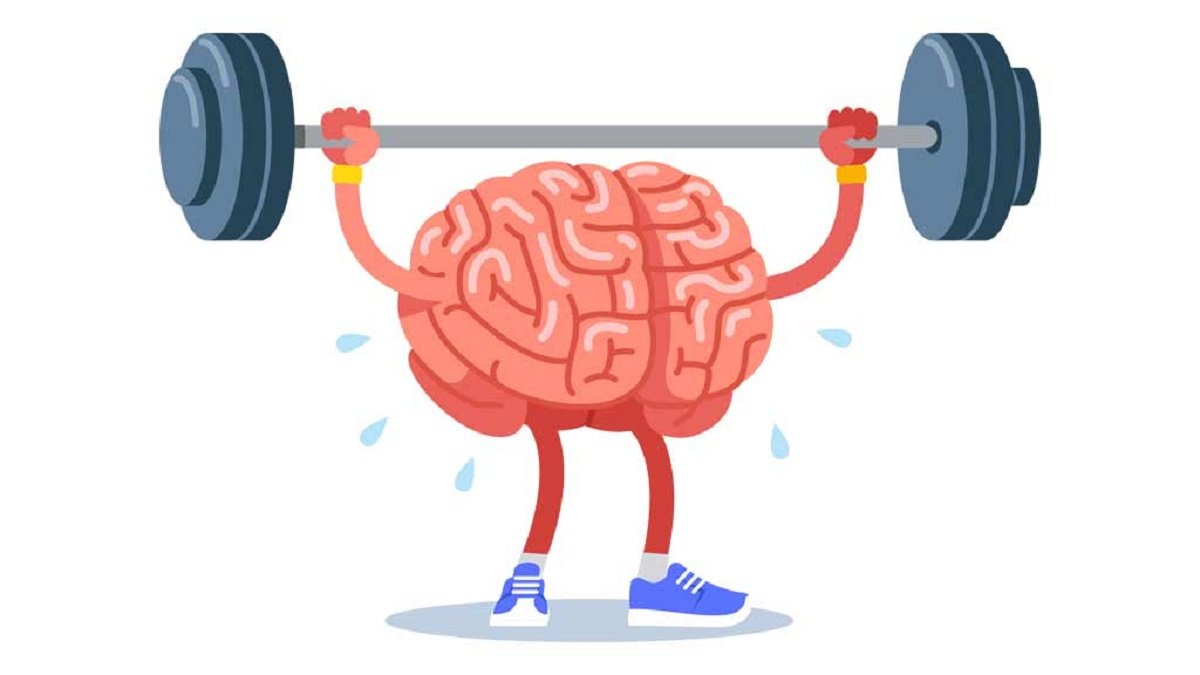A mental load may leave you feeling overwhelmed, stressed out, and exhausted from managing childcare and domestic duties to working responsibilities and taking care of your wellbeing. To assist you in efficiently managing and balancing your duties, we will examine Ways to Manage Mental Load in this article along with ideas for empowerment.
The cognitive effort needed to do a job or handle a circumstance is referred to as mental load. It comprises all of the organizational and mental preparation that goes into finishing the job as well as the actual work that has to be done.
Organizing a dinner party, for instance, entails preparing the meal, contacting guests, purchasing food, arranging the table, and cooking. These responsibilities add to the mental strain, which if not adequately controlled may become overpowering.
Tips For Managing Mental Load

1. Sync Up With Your Partner Or Team
Individuals who shoulder the emotional burden of managing a group or a home may often feel resentment towards their spouse or other team members for not pitching in. Thus, it’s critical to seek out help and have frequent communication. Neither your colleagues nor your spouse are probably aware of the burden you are carrying.
Incorporate communication into your daily routine and remember to take stock of your needs and current situation as one of the Ways to Manage Mental Load. Go over a support checklist once a week (or on a regular schedule that suits everyone) with your partner or team.
Among the questions on your checklist may be the following ones:
- This week, how are you feeling?
- What particular difficulties are you having this week?
- In what ways may I help you this week?
- What is necessary for this week?
- What can you assign or remove from your plate?
- What issues, notions, or conundrums are you thinking about?
- What self-care practice are you following this week? How can I assist you in making time for that?
- How can we help each other out and communicate better?
2. Distribute, Delegate and Implement
Organizing oneself is fine, but organizing with others is much better! Assigning tasks to people depending on who can do which ones best, based on their talents, is a wonderful place to start, much like in a skills evaluation. Everyone’s agreement with the way the jobs have been distributed is a must for this to succeed. This is true for all caregivers, including grandparents, kids, nannies, housekeepers, and others, not just parents.
Assuming that the jobs have been evenly divided, you will need to refrain from micromanaging those assistants. Trust is crucial, particularly if you have already established a framework for activities or decided on important family regulations.
Our family software, Share(d), was created to make it simple to assign tasks with love and respect. Members in your Share(d) circle may easily assist with running errands, editing To-Do Lists, managing funds, and much more because of personalized and shared features.
3. Give Up on Perfection and Concentrate on Your Strengths
It’s wonderful to aim for perfection in whatever you do. But it often results in burnout, particularly if you tend to strive for perfection. The guilt that comes with not being “good enough” at everything is something that perfectionists often experience, and this may frequently result in sadness and anxiety.
The good news is here. There is simply no way to achieve perfection. It’s okay to let go, acknowledge your success, and even get a bit dirty in the process! What may it look like for you to concentrate on your skills and let others take the lead in other areas rather than striving for perfection? This can be an answer to How to Manage Mental Load.
To discover and concentrate on your abilities, do this exercise:
- Think back to the pursuits and jobs that give you the greatest energy or complete engagement. What is it about these pursuits that you find most enjoyable? Write down all of those assignments or activities, and look for any patterns.
- Next, consider the things that tire you out the most. What exactly about these pursuits wears you out? List those activities and make a note of any recurring themes.
4. Allot Some Minutes For Yourself Every Day
When we are engrossed in our everyday schedules, it is difficult to find time for ourselves. However, taking a few minutes each day to log off and replenish our emotional reserves just takes a few minutes. After all, our interactions with others are influenced by our overall well-being.
Depending on your requirements and personality, there are several ways to spend your private time. While some people enjoy something more physical, like riding a bike or dancing, others may go for something quieter, like reading, yoga, meditation, or taking a stroll.
You must switch off your phone and have some alone time. This moment may also be added to your shared calendar. Everyone will know not to disturb you that way! Thirty minutes, an hour, three hours… It doesn’t matter how much time you have as long as it’s worthwhile and quality time.
5. Establish A Time-Blocking Regimen
A schedule with time-blocking is one of the effective Ways to Manage Mental Load. Creating consistent timetables and habits can help you organize your work and make it easier to handle. Set aside time using the time-blocking technique for things like work, housework, and personal hobbies.
Treating your time like a budget, knowing your limits, and knowing when to say no to things are all part of time-blocking. You may time-block using several premium and free tools, such as Google Calendar or a paper daily planner.
6. Break Bigger Tasks Into Smaller Tasks
Complex activities may often seem overwhelming and increase your mental load, according to research. Divide them into more manageable, smaller phases, and think about the parts you can assign as well. It is easier to accomplish the total task if you concentrate on doing one stage at a time. To do this, follow these steps:
- Visualize success: See your project finished. Jot down the definition of success, the issue you want to resolve, and the goal of your project.
- Sort the components into categories: Sort your imagined achievement into distinct categories by working backward from your vision. This might include necessary tools, funding, internal and external assistance, etc.
- Put each assignment in writing: List all the tasks that need to be completed within 20 minutes for each category to meet the target.
- Examine and rank the following: Examine your to-do lists and rank them according to relevance and urgency.
- Organize your tasks: Organize your chores into a schedule that fits your deadline. Make any necessary adjustments to take into consideration any delays or modifications encountered throughout the process.
7. Make Self-Compassion and Self-Care A Priority
Self-care and self-compassion are answers to How to Manage Mental Load. According to research, prioritizing self-care activities might help you decompress and refuel. Take part in relaxing activities: work out, meditate, take up a hobby, and spend time with loved ones.
Realizing the value of self-care is the first step towards prioritizing it. You can take better care of others when you take care of yourself first. If you’re not used to making self-care a priority, start small and ask a buddy to hold you responsible. A little amount goes a long way.
- Include little periods of self-care: Self-care doesn’t need to be extensive or time-consuming. Include little periods of self-care in your daily routine. It might include taking quick pauses to stretch, engaging in deep breathing techniques, or spending a few minutes in meditation or mindfulness.
- Seek assistance: Seek motivation and accountability from friends, family, or support groups to prioritize self-care. Tell them about your self-care objectives and request their help in keeping you responsible.
8. Learn To Say “No”
Setting limits and having to say no might be difficult at times. However, it’s OK to put your needs first and back off when necessary. Remind yourself that saying no does not make you a horrible person and that you deserve to put your health first. In addition to taking care of yourself and lessening your emotional burden, you also allow others to take care of themselves when you express your limits politely and clearly.
Understanding your priorities and boundaries is a prerequisite for learning how to say no, and this requires developing self-awareness. Whenever someone makes a request or demands anything of you, pay attention to your feelings and emotions. Recognize when you begin to feel exhausted, agitated, or overwhelmed. Being self-aware may assist you in determining when saying no is essential.
Consider how you would respond if a buddy asked you to do a favor that you are unable to do. Do you feel overburdened or eager to assist? Does it conflict with anything you’ve listed as important? Make sense of your values and priorities so you may decide what matters most to you. Saying no to something might be the right decision if it doesn’t fit within your priorities. It is one of the best Ways To Manage Mental Load.
9. Practice Mindfulness
Develop mindfulness practices, such as meditation or deep breathing exercises, to help clear your head and minimize mental clutter. This may help you concentrate more clearly and handle your mental workload more effectively. The following advice may assist you in using mindfulness in your day-to-day activities:
- Start with your breath: Pay attention to your breath at first. Breathe deeply for a few moments, observing how the air enters and exits your body. To focus your attention on the here and now, use your breath as an anchor.
- Activate your senses: Set aside time throughout the day to activate your senses. Observe your surroundings’ sights, sounds, tastes, smells, and textures. Using your senses to their fullest aids in bringing your consciousness into the present.
- Eat mindfully: Take your time and enjoy each bite of your food. As you eat, be mindful of the tastes, textures, and experiences. Chew gently, enjoying every taste.
- Develop a nonjudgmental awareness: Take an objective look at your ideas, emotions, and physical experiences. Simply accept events as they are, letting them come and go without attachment or aversion, rather than categorizing them as good or evil.
- Use guided mindfulness meditation: To assist you on your mindfulness journey, use applications such as Calm or Headspace that provide guided mindfulness meditation sessions.
- Make reminders: Throughout the day, provide signals or reminders to help you return to the present. This may be as simple as setting up a phone chime, placing a sticky note on your desk, or connecting mindfulness to certain tasks like taking a shower or standing in line for an elevator.
Types of Mental Load
According to research, there are three different kinds of mental loads that we encounter regularly: relevant, extraneous, and intrinsic loads. There are also several Ways to Manage Mental Load:
Intrinsic Load: The inherent intricacy of the work at hand is known as the intrinsic load. The volume of data that must be processed and the degree of complexity of the job define this kind of load. For instance, you may need to put in a lot of mental work to comprehend difficult subjects if you’re assisting your youngster with their calculus homework.
Extraneous Load: The term “extraneous load” describes the needless mental work put out to do a job as a result of poor design or outside distractions. For instance, you may be attempting to entertain visitors, create a new cuisine, and reply to many text messages at the same time. The added burden of preparing the new dish increases due to the increased demands on your attention.
Germane Load: The mental effort needed to comprehend and acquire new knowledge is known as the germane load. It is vital to use this mode while learning and solving problems. For instance, you may attempt a new pastime that calls for picking up new abilities. You may sharpen your cognitive talents by setting yourself the challenge of learning something new.
FAQ
Q: What is the impact of mental health on relationships?
A: Our mental health conditions may sometimes make us feel anxious and alone, impair our capacity for empathy, or make us feel tired. These symptoms may sometimes lead to codependency or even relationship animosity.
Q: What is the responsibility for mental load?
A: Mental load refers to the mental and emotional strain that comes with having to plan, organize, and think through every aspect of life—not only for ourselves, but also for our spouse, kids, and other family members.
Q: How is day-to-day living impacted by mental health?
A: It influences our feelings, thoughts, and behaviors. It also influences how we respond to stress, interact with others, and make wise decisions. Every stage of life, from infancy and adolescence to maturity, is critical for mental health.











